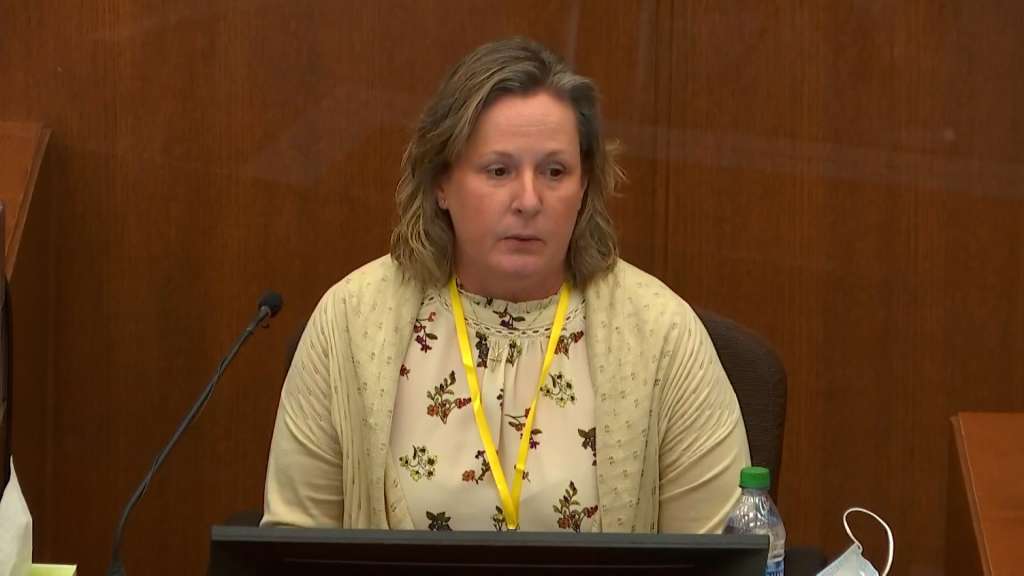MINNEAPOLIS (AP) — The jury reached a “trial outcome” Thursday in the manslaughter trial of suburban Minneapolis police officer Kim Potter, who shot and killed Black motorist Daunte Wright after she says she mistook her gun for her Taser.
Court spokesman Nik Nadeau said he did not know whether the notice of a “trial outcome” published on a state court website meant that verdicts had been reached. During the jury’s second day of deliberations, it asked Judge Regina Chu how to proceed if jury members were having difficulty agreeing, and she instructed them to keep talking.
The jury began deliberations on Monday. The outcome will be read in court between 1:30 p.m. and 2 p.m. CST.
A judge typically doesn’t declare a hung jury until jurors have reached an impasse, a process that usually requires jurors to tell the judge that they cannot agree. In Potter’s case, the only public indication that jurors might be struggling was Tuesday’s question, when they didn’t say they couldn’t agree but instead asked what steps they could take if they were having a hard time doing so.
Potter, 49, said she meant to use her Taser on Wright rather than her gun. She is charged with first- and second-degree manslaughter. If convicted of the most serious charge, she would face a sentence of about seven years under state guidelines, though prosecutors have said they will seek more.
Prosecutor Erin Eldridge argued Monday that Potter made a “blunder of epic proportions” and did not have “a license to kill.”
Potter’s attorney Earl Gray, though, countered during closing arguments that the former Brooklyn Center officer made an honest mistake by pulling her handgun instead of her Taser and that shooting Wright wasn’t a crime.
Potter, who is white, said she meant to use her Taser on Wright rather than her gun. She is charged with first- and second-degree manslaughter. If convicted of the most serious charge, Potter, 49, would face a sentence of about seven years under state guidelines, though prosecutors have said they will seek more.
Wright’s death set off angry protests in Brooklyn Center just as nearby Minneapolis was on edge over Derek Chauvin’s trial in George Floyd’s death.
Potter, who resigned two days after Wright’s death, testified Friday that she “didn’t want to hurt anybody” and that she was “sorry it happened.”
Chu told jurors that the state doesn’t have to prove Potter tried to kill Wright.
The judge said for first-degree manslaughter, prosecutors must prove that Potter caused Wright’s death while committing the crime of reckless handling of a firearm. This means they must prove that she committed a conscious or intentional act while handling or using a firearm that creates a substantial or unjustifiable risk that she was aware of and disregarded, and that she endangered safety.
For second-degree manslaughter, prosecutors must prove she acted with culpable negligence, meaning she consciously took a chance of causing death or great bodily harm.
(Copyright (c) 2024 The Associated Press. All Rights Reserved. This material may not be published, broadcast, rewritten, or redistributed.)

